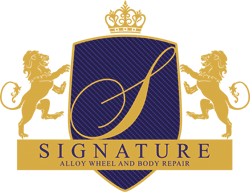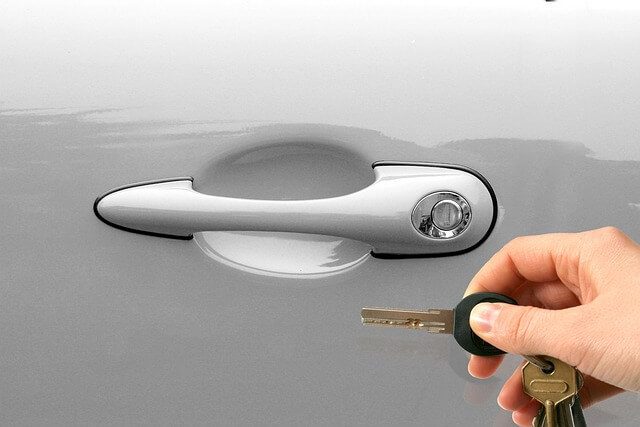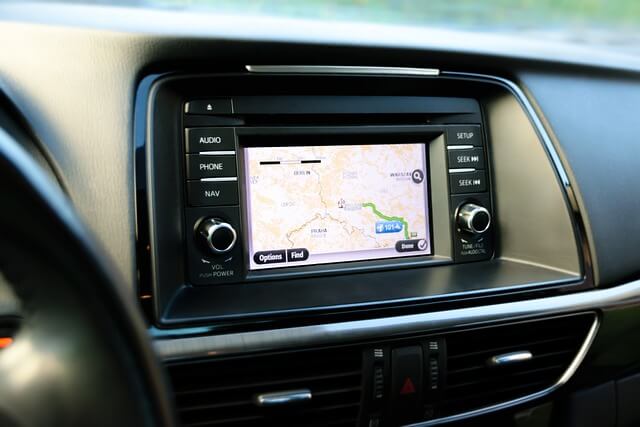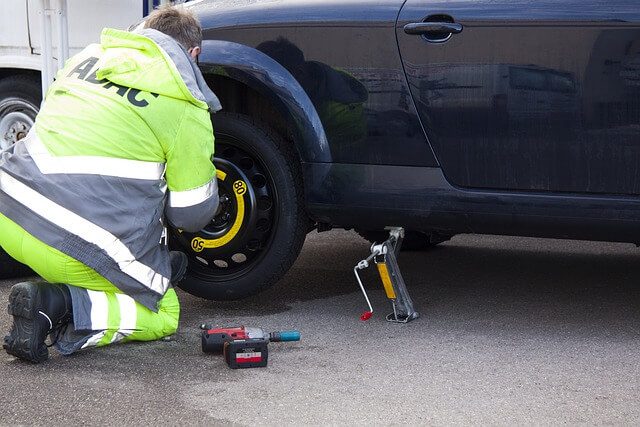
Change A Car Tyre: 8 Simple Steps
19 May 2023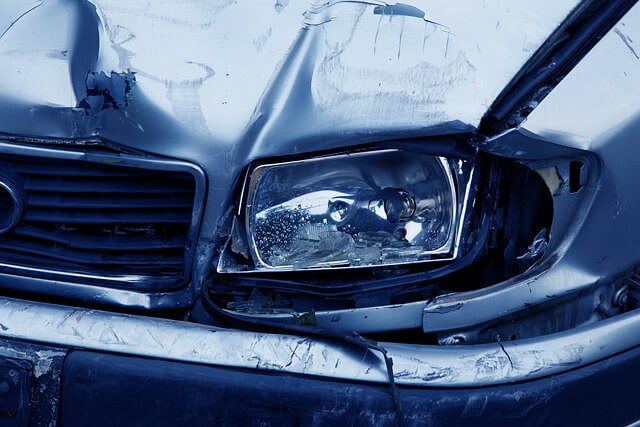
What to Do After a Car Accident in the UK
25 May 2023In the UK, ensuring roadworthiness and vehicle safety is a top priority. This is where the MOT test comes into play. Understanding the MOT requirements is essential for all vehicle owners.
Therefore, In this article, we will explore the MOT requirements in the UK, the components of the MOT test, the test process, and the consequences of not having an MOT.
Additionally, we will provide some useful tips for a successful MOT test.
Understanding MOT Requirements
What is the MOT test?
The MOT test, short for Ministry of Transport test, is an annual examination that determines whether a vehicle meets the necessary safety and environmental standards. Furthermore, It is a legal requirement for most vehicles over three years old in the UK.
When is an MOT test required?
Every vehicle in the UK must undergo an MOT test annually, starting from the third anniversary of its registration. Additionally, failing to have a valid MOT certificate can result in fines and potential insurance issues.
What does the MOT test cover?
The MOT test covers various components of a vehicle as part of the requirements in order to ensure its safety and roadworthiness. Subsequently, these include checks on the lights and signaling equipment, brakes, tyres and wheels, steering and suspension, exhaust and emissions, seats and seatbelts, electrical systems, mirrors and wipers, and the body and structure of the vehicle.
MOT Test Components
Checking the vehicle's identification
During the MOT test, the vehicle's identification details, such as the registration number and Vehicle Identification Number (VIN), are verified to ensure they match the records.
Inspecting the lights and signaling equipment
The lights and signaling equipment, including headlights, indicators, brake lights, and hazard lights, are thoroughly examined as part of the MOT requirements for functionality and correct alignment.
Testing the brakes
The braking system is a crucial safety component. Brake performance, including pedal efficiency, balance, and operation of the Anti-lock Braking System (ABS), is assessed during the MOT test.
Examining the tyres and wheels
The condition and tread depth of the tyres, as well as the wheel alignment, are checked as part of the MOT requirements in order to ensure road safety and proper handling of the vehicle.
Assessing the steering and suspension
The steering system and suspension components are inspected to confirm their functionality and proper operation, ensuring the vehicle maintains stability and control.
Inspecting the body and structure
The body and structure of the vehicle, including the chassis, are examined for signs of corrosion, damage, or any structural weaknesses that may compromise safety.
Checking the exhaust and emissions
The exhaust system is inspected to ensure it meets the emissions standards set by the government, reducing environmental impact and promoting cleaner air quality.
Testing the seats and seatbelts
The seats and seatbelts are checked for proper operation, including the condition of seatbelts, their anchorage points, and the ability to securely restrain passengers.
Assessing the electrical systems
The electrical systems, such as the battery, wiring, and switches, are examined as part of the MOT requirements in order to ensure they function correctly and pose no safety risks.
Examining the mirrors and wipers
Mirrors and windscreen wipers are inspected for visibility and functionality, as they play a crucial role in maintaining a clear view of the road.
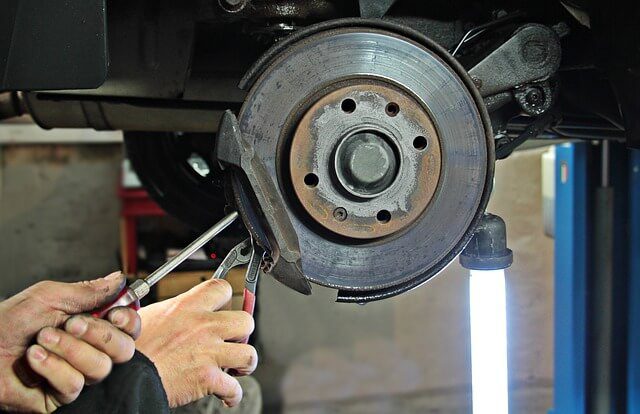
Brake discs will be checked as part of your annual MOT test requirements
MOT Test Process
Finding an authorised MOT test centre
In order to perform the MOT test, it is essential to find an authorised test centre. These centres are approved by the Driver and Vehicle Standards Agency (DVSA) and have certified MOT testers to comply with the requirements.
Booking an MOT test
Once you have chosen a test centre, you need to book an appointment for the MOT test. Therefore, It is advisable to book well in advance to ensure availability.
Preparing for the MOT test
Before the MOT test, you should conduct a basic inspection of your vehicle to ensure it meets the basic standard requirements. So make sure to check the lights, horn, brakes, tyres, and other essential components to identify any potential issues.
Attending the MOT test
On the day of the MOT test, take your vehicle to the test centre at the scheduled time. In addition, make sure to bring your vehicle registration document (V5C), as it may be required.
Understanding the test result
After the MOT test, the tester will provide you with a test result document. If your vehicle passes the test, you will receive an MOT certificate. In case of failure, you will be informed about the reasons, and a retest may be required under the MOT testing requirements.
Consequences of Not Having an MOT
Driving without a valid MOT certificate can have serious consequences. Furthermore, It is illegal and can lead to penalties, fines, and even the invalidation of your insurance policy. Moreover, an MOT certificate ensures that your vehicle meets safety and environmental standards, reducing the risk of accidents and contributing to a greener environment.
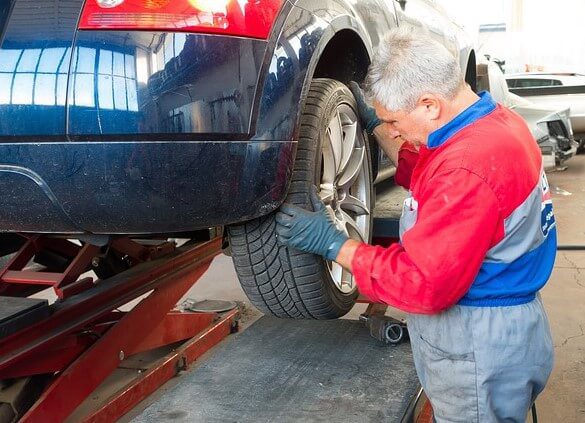
Checking of tyres is essential under MOT requirements
Tips for a Successful MOT Test
Regular maintenance and inspections
Regularly maintaining your vehicle and conducting routine inspections can help identify and address any issues before the MOT test. Consequently, this proactive approach can improve the chances of a successful test.
Addressing minor issues promptly
If you notice any minor faults or defects, it is advisable to address them promptly. As a result, small repairs or adjustments can prevent them from turning into significant issues that could cause your vehicle to fail the MOT test.
Keeping necessary documentation
Ensure you have all the necessary documentation related to your vehicle, such as the V5C logbook, service history, and previous MOT certificates. These documents may be required during the MOT test.
Seeking professional help
If you are unsure about the condition of your vehicle or need assistance in preparing for the MOT test or understanding the requirements, consider seeking professional help from a qualified mechanic or garage. Subsequently, they can provide expert advice and ensure your vehicle is ready for the test.
Conclusion On MOT Requirements
In conclusion, adhering to MOT requirements is crucial for all vehicle owners in the UK. So by understanding the MOT test, its components, and the test process, you can ensure your vehicle meets the necessary safety and environmental standards.
In addition, regular maintenance, addressing minor issues promptly, and seeking professional help when needed can contribute to a successful MOT test. Also, remember that driving without a valid MOT certificate can lead to legal consequences and jeopardise your safety and insurance coverage.
FAQs - MOT Requirements
1. What happens if my vehicle fails the MOT test?
If your vehicle fails the MOT test, you will be provided with a test result document outlining the reasons for failure. Subsequently, you will need to address the identified issues and have your vehicle retested within a specific timeframe.
2. Can I drive my vehicle without a valid MOT certificate?
No, it is illegal to drive a vehicle without a valid MOT certificate, unless you are driving to a pre-booked MOT test appointment or driving to a place for necessary repairs or testing.
3. Can I take my vehicle for an MOT test early?
Yes, you can have your vehicle tested up to one month (minus a day) before the current MOT certificate expires. Then, the remaining days will be added to the new certificate's duration.
4. How often do I need to renew my MOT certificate?
You need to renew your MOT certificate annually under UK requirements, starting from the third anniversary of your vehicle's registration.
5. Are there any exemptions from MOT testing?
Some vehicles are exempt from MOT testing, such as electric goods vehicles, vehicles made before 1960, and certain agricultural and historic vehicles. However, it is important to check the specific criteria and regulations for exemptions.
6. Is bodywork damage an MOT failure?
In the UK, the Ministry of Transport (MOT) test primarily focuses on the safety and roadworthiness of vehicles. Bodywork damage, by itself, does not automatically result in an MOT failure. The key factor is whether the damage affects the safety or structural integrity of the vehicle.
During an MOT test, the examiner will inspect various aspects of the vehicle, including bodywork, to ensure it meets the necessary safety standards. However, If the bodywork damage is severe and compromises the structural integrity of the vehicle, it may be considered a significant defect and could lead to an MOT failure.
It's important to note that while bodywork damage alone may not cause an MOT failure, excessive rust, sharp edges, or jagged protrusions resulting from the damage could still be flagged as potential safety concerns during the examination.
7. Does a failed MOT affect insurance?
A failed MOT test itself does not directly affect your insurance in the UK. The MOT test is a legal requirement to ensure the safety and roadworthiness of vehicles. Therefore, It is separate from your insurance policy, which covers you for potential accidents, damage, theft, and other incidents.
However, it's worth noting that if your vehicle fails its MOT and is deemed unroadworthy, driving it without a valid MOT certificate could invalidate your insurance. Operating a vehicle without a valid MOT is illegal, and if you have an accident while driving without a valid MOT, your insurance provider may refuse to cover any claims.
Additionally, if your vehicle fails its MOT due to significant defects or safety issues, you are required to rectify those issues before obtaining a valid MOT certificate. Depending on the nature of the repairs needed, the cost of these repairs might be claimed through your insurance if you have relevant coverage, such as comprehensive insurance or specific repair coverage.
Therefore, It's always a good idea to check the terms and conditions of your insurance policy or consult with your insurance provider to understand the specific impact of a failed MOT on your coverage. Each insurance policy may have different provisions and requirements, so it's best to clarify any doubts directly with your insurer.
Get in touch for professional Alloy Wheel & Car Body Repairs
Thank you for reading our guide on MOT requirements in the UK. We hope you found it useful. If your car needs alloy wheel or body repair, then bring your vehicle to our car body shop in Radcliffe near Manchester and our professional technicians will take care of it for you.
In addition, for your convenience, we offer a fully mobile service and can come to you. We cover the whole of Greater Manchester, Lancashire, Cheshire, Merseyside and Yorkshire.
If you’d like to get a price for our professional mobile smart repair service, then please get in touch with us now on 0161 667 0919 or by filling out our quick quote form to get a free, no-obligation quotation.
We have lots of 5 star reviews on Google from happy customers, so please feel free to check out our reviews.
Or contact our team to arrange a time to bring your vehicle in for an estimate. We look forward to restoring your vehicle and getting you back on the roads!
